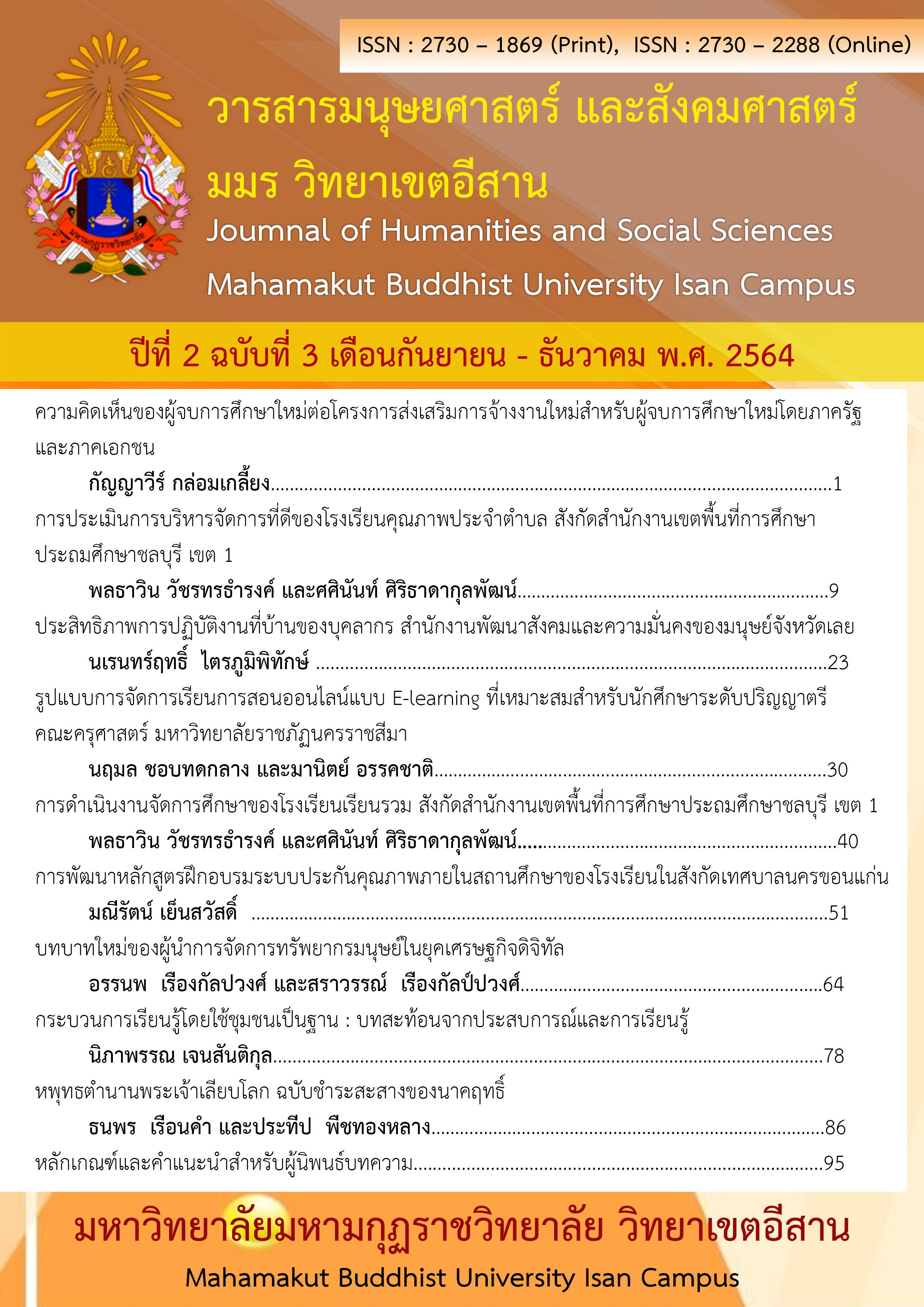Community-Based Learning Process : Reflections on Experience and Learning
Keywords:
Keywords: Community-Based Learning; Experience; Learning OutcomesAbstract
Abstract
This academic article aims to present the process of teaching and learning in community-based learning courses by reflecting that the learners have social interaction by using the community as a case study helps learners to learn both in theory and practice. The learner had planning skills in preparing to go to the area to study in the community, had critical thinking skills about community problems and the problem was discussed, analyzed, and critically presented solutions, had communication and presentation skills by presenting in a variety of formats able to use tools used in community learning, such as genogram or genealogical diagram, community organizations chart, local health systems, community calendar, local history, life stories and geo-social mapping, and identify advantages and disadvantages, systematic use of the tool. Learner behavior should be more active and interested in learning and make the learning atmosphere different from listening to lectures only in class.
References
สาขาวิชาสังคมศาสตร์. (2560). หลักสูตรรัฐประศาสนศาสตรบัณฑิต กลุ่มวิชารัฐประศาสนศาสตร์ (ฉบับปรับปรุง พ.ศ. 2560). ขอนแก่น : คณะมนุษยศาสตร์และสังคมศาสตร์ มหาวิทยาลัยขอนแก่น.
ภูษณิศา มีนาเขตร และสิริทรัพย์ สีหะวงษ์. (2562). ผลของการจัดการเรียนการสอนแบบใช้ชุมชนเป็นฐานร่วมกับ
การใช้ Courseville ในรายวิชาการสร้างเสริมสุขภาพต่อการส่งเสริมทักษะการเรียนรู้ในศตวรรษที่ 21
ของนักศึกษาพยาบาล. วารสารสุขภาพและการศึกษาพยาบาล. 25 (1), 74-87.
เรณุมาศ มาอุ่น. (2559). การจัดการเรียนการสอนในระดับอุดมศึกษาอย่างมีประสิทธิภาพ. วารสารเทคโนโลยี
ภาคใต้. 9 (2), 169-176.
วิไลภรณ์ ฤทธิคุปต์. (2561). การจัดการเรียนรู้โดยใช้ชุมชนเป็นฐาน : กลยุทธ์การจัดการ เรียนรู้ที่มีประสิทธิภาพ
ของครูในศตวรรษที่ 21. Graduate School Journal. 11 (3), 179-191.
สุปรียา ไผ่ล้อม. (2562). รูปแบบการจัดกิจกรรมการเรียนรู้โดยใช้ชุมชนเมืองเป็นฐานเพื่อส่งเสริมความสามารถใน
การจัดการสิ่งแวดล้อมของนักเรียนชั้นประถมศึกษาปีที่ 4. วารสารเทคโนโลยีและสื่อสารการศึกษา
คณะศึกษาศาสตร์ มหาวิทยาลัยมหาสารคาม. 2 (5), 96-111.
Beakley, B. A., Yoder, S. L. & West, L. L. (2003). Community-based instruction: A Guidebook for Teachers. Virginia : Council for Exceptional Children.
Gagnon, G.W. & Collay, M. (2001). Designing for Learning: Six Elements in Constructivist Classrooms. (13thed). Thousand Oaks : Corwin Press.
Melaville, A., Berg, A.C., & Blank, M.J. (2006). Community-Based Learning: Engaging Students for Success and Citizenship. United States of America : University of Nebraska at Omaha.
Owens, T. R. & Wang, C. (1996). Community-Based Learning : A Foundation for Meaningful Education Reform. United States of America : University of Nebraska at Omaha.



